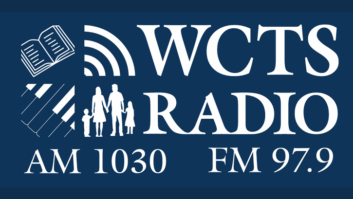An Illinois translator station looking to renew its license now faces a $9,000 civil penalty and a consent decree after questions were raised about the licensee’s candor and forthrightness during the license renewal process.
However, the objections raised by an individual slowed but did not stymie Centro Cristiano de Vida Eterna from receiving a green light to renew its license.
The objections raised questions as to whether Centro violated certain rules when it came to operation of translator W252AW in Chicago. The objections raised by an individual named Albert David questioned whether or not Centro had constructed its translator as it said it had, if the translator received timely authority to remain quiet for more than 30 days, if Centro complied with station identification requirements and if the translator had been operating when its primary station — WRLL(AM) in Cicero, Ill. — was not broadcasting.
The first step of the Media Bureau at the Federal Communications Commission was to issue a letter of inquiry asking Centro to explain the potential violations.
Weeding through the many procedural and substantive issues that followed, the Media Bureau said that many of David’s pleadings were reliable. But the bureau also rejected other allegations.
For example, the bureau rejected David’s allegations that the translator was never constructed, never resumed operations and falsely claimed it was silent due to transmitter issues, all which would have been violations of the FCC Rules. In 2019, Centro answered an operational status inquiry letter sent by the bureau certifying that Centro did not make false claims regarding the construction of the translator.
The bureau also rejected the assertion that the translator failed to resume operations prior to one year of silence, which would have automatically expired the station’s license. According to the bureau, the station went silent on March 6, 2020, and resumed operations on March 5, 2021, after receiving special temporary authority (STA) to operate at lower power. The bureau also accepted the station’s assertion that it went silent due to a brief technical issue on the evening of March 6, 2021 — a date that David claims the station was definitely not on the air — and then resumed operations the following day. David conceded to the bureau that he was not able prove that the translator was not on air prior to March 7. As a result, the bureau found that the license did not automatically expire.
[See Our Business and Law Page]
The bureau also rejected David’s allegation that the translator failed to follow station identification requirements. Centro confirmed under perjury that it did and David said he had no evidence to refute that.
But the bureau did conclude that Centro failed to comply with several FCC Rules including the silent STA rule, the translator rebroadcasting rule and the truthful and accurate statements rule.
First, the bureau said Centro failed to tell the commission that it had gone silent and it failed to request an STA when it should have.
Second, the bureau said Centro violated FCC Rules by rebroadcasting its primary station while WRLL was off the air.
Finally, the bureau said Centro provided inaccurate information in its pleadings and its initial response to the commission’s letter of inquiry letter by claiming that the translator was not rebroadcasting when its primary station was off the air. Specifically, the Centro adamantly maintained that it did not broadcast any programming while the primary station was off line — saying any broadcast would have been simply static — only to relent when shown conclusive evidence that the transmitter had in fact been broadcasting WRLL programming. It was only at that point that Centro admitted an Internet-only feed was the culprit.
Based on these issues, the bureau suspended processing the application and pressed forward with its investigation.
Ultimately the bureau and Centro negotiated terms of a consent decree to address those violations. That decree requires Centro to make a civil penalty payment of $9,000 and meet other terms. If those terms are met, the bureau plans to grant Centro’s license renewal application.







